Gaza, MINA – Gaza Ministry of Health reported the treatment crisis worsened by depleting 50% of basic medicines, which means more than half of patients in the Gaza Strip were left without drugs.
Based on the Ministry’s press release received by MINA on Wednesday, July 24, shortages also included 25% in medical supplies, 60% of laboratory supplies, and blood banks.
This deficiency is classified as serious and unprecedented. This causes a threat to the entire health care system.
Given this difficult situation, the Ministry of Health in Gaza emphasizes a number of things. First, the Ministry of Health calls for the Israeli occupation to take responsibility for the lives of patients in Gaza and due to their deteriorating health.
Also Read: Israel Welcomes UNSC Gaza Resolution, Opposition Criticizes Deal
The humanitarian situation is bad due to the continuation of siege and prevention of the entry of drugs and medical delegation to Gaza, most importantly, preventing 45% of Gaza patients from traveling outside for treatment.
Second, the total import value of drugs for hospitals and health facilities in the first half of this year 2019 was 12.8 million USD, of which 1.2 million dollars came from the Ministry’s warehouses in the occupied West Bank. This amount represents 30% of our annual drug needs of 40 million USD.
Third, treatment deficits of 55% of patients with kidney failure due to lack of Erythropoietin to treat chronic kidney anemia. It shortcoming will force 1,150 kidney failure patients and kidney transplants to receive continuous blood transfusions.
Fourth, oncology patients cannot accept their treatment protocol because 62% lack their medication.
Also Read: Hamas Rejects International Forces in Gaza
Fifth, maternal and child health services are one of the most affected by the crisis of drug shortages with a deficit rate of 69%. Anti-RhD care is very important for more than 450 women who give birth in Gaza hospitals every month are also threatened by a deficit. In addition, there is a severe shortage of nutritional supplements for pregnant women and children.
Sixth, lack of factor 8 and factor 9 for patients with hemophilia for 125 patients, 50% of whom are children. In addition to the lack of treatment of increased iron levels in thalassemia patients.
Seventh, the inability of primary health care centers to provide 69% of treatments used for chronic cases.
Eighth, the decline in the number of cardiac catheterization services and open-heart surgery was 53%, leading to an increase in the number of cases referred to abroad. That endangers the lives of these patients in Israeli racist practices.
Also Read: UN Says Israel Blocking Vital Tent Deliveries to Gaza
Palestinian Ministry of Health calls on the world community to take immediate action and is effective to enable the Ministry of Health to overcome the pharmaceutical crisis that has gripped the core of basic health services. (T/Sj/P2)
Mi’raj News Agency (MINA)
Also Read: 98 Palestinian Detainees Have Died in Prisons Since Gaza War Began














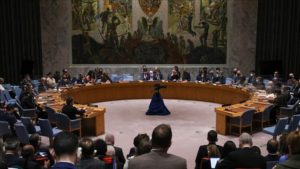

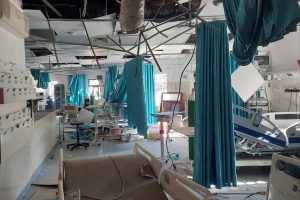
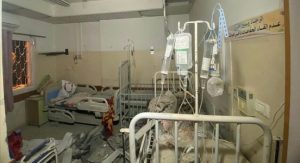
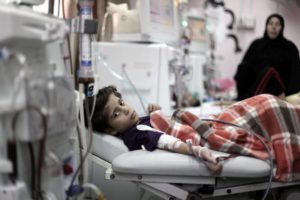
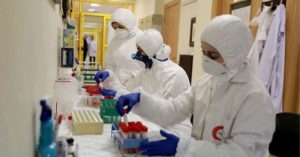

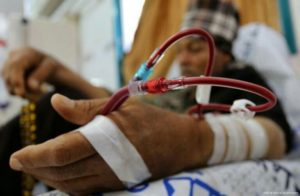












 Mina Indonesia
Mina Indonesia Mina Arabic
Mina Arabic